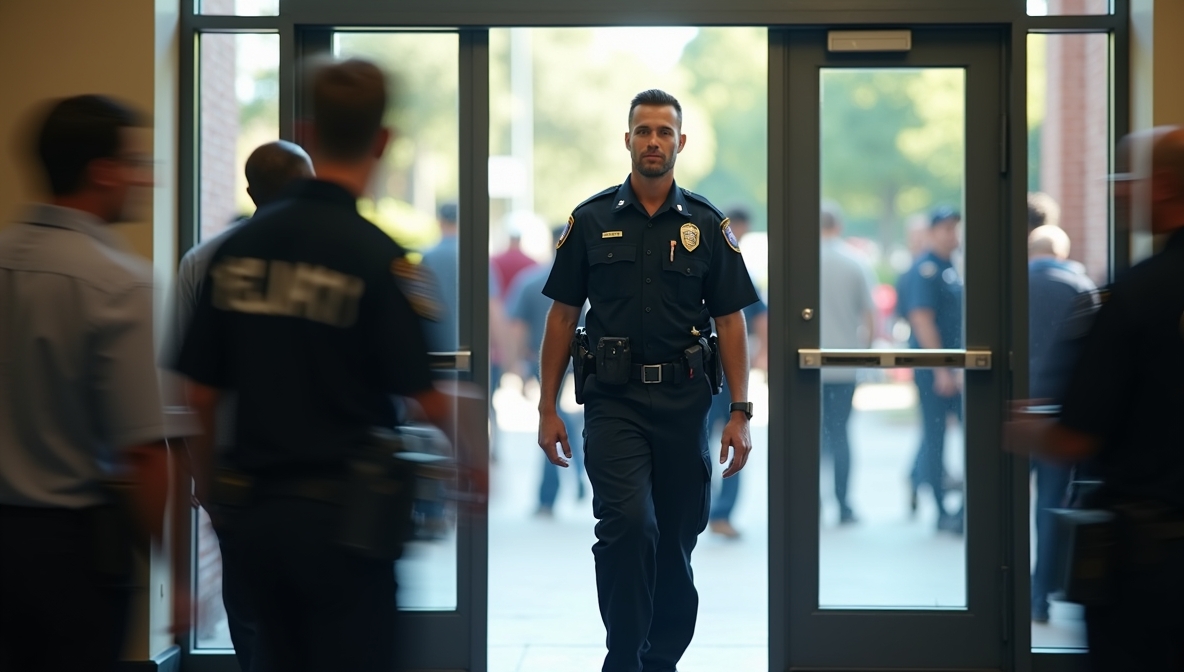Georgia security guard background checks are mandated by the Georgia Board of Private Detective & Security Agencies and involve a multi-tier investigation process including FBI fingerprint analysis, statewide criminal record searches, and verification of employment eligibility that typically takes 30-45 days to complete. Security agency owners must understand that state licensing requirements operate separately from federal employment law obligations, and consulting with qualified legal counsel is essential to navigate both regulatory frameworks while efficiently onboarding licensed security personnel in Atlanta and throughout the state.
Key Takeaways
- Georgia security guard background checks are administered through the Georgia Board of Private Detective & Security Agencies and require FBI fingerprinting, state criminal history reviews, and employment verification before license approval, with employers separately responsible for Fair Credit Reporting Act (FCRA) compliance when using consumer reporting agencies.
- Disqualifying factors generally include felony convictions within the past 10 years, serious violent or sexual offenses, drug trafficking convictions, and domestic violence convictions, though the Board exercises discretionary authority in reviewing applications and may consider mitigating circumstances.
- The background check process typically takes 30-45 days from fingerprint submission to license approval, with expedited processing available for agencies that submit complete applications without errors or missing documentation.
- Fingerprinting must be completed at authorized Georgia Applicant Processing Service (GAPS) locations or approved Live Scan facilities, with results electronically transmitted to the Georgia Crime Information Center.
- Employers using third-party background check services must comply with FCRA requirements including providing standalone written disclosures, obtaining written authorization, and following pre-adverse action and adverse action notice procedures before making employment decisions based on background check results.
- Criminal history screening policies may create disparate impact on protected classes, requiring employers to conduct individualized assessments considering the nature of the offense, time elapsed, and job duties before making employment decisions based on background check information.
- Appeal processes are available for applicants denied licensure, requiring submission of rehabilitation evidence, character references, and documentation of circumstances within 30 days of the denial notice.
- Security agencies can streamline compliance by implementing pre-screening protocols, maintaining organized applicant files, and training HR staff on Georgia-specific requirements while consulting legal counsel for comprehensive compliance programs.
Understanding Georgia Security Guard Licensing Requirements
The Georgia Board of Private Detective & Security Agencies Oversight
The Georgia Board of Private Detective & Security Agencies serves as the primary regulatory authority governing all private security operations within the state. Established under O.C.G.A. § 43-38-1, this board maintains oversight of security guard licensing. The board ensures that qualified individuals with satisfactory background investigations receive authorization to work in the private security sector.
The board's jurisdiction extends to contract security companies, proprietary security operations, private investigators, and alarm system installers throughout Georgia. For 2025, the licensing framework requires individual security guards to obtain specific license types depending on their job responsibilities. Background checks represent a cornerstone of this licensing process, with the board maintaining authority to deny applications, suspend existing licenses, or revoke credentials when disqualifying information surfaces during investigations.
Mandatory Background Check Components for State Licensing
Georgia security guard background checks encompass multiple verification layers designed to assess an applicant's suitability for positions of trust. The state requires comprehensive screening across federal, state, and local databases. Additionally, employment and character verification play critical roles in the approval process.
The background investigation includes these essential components:
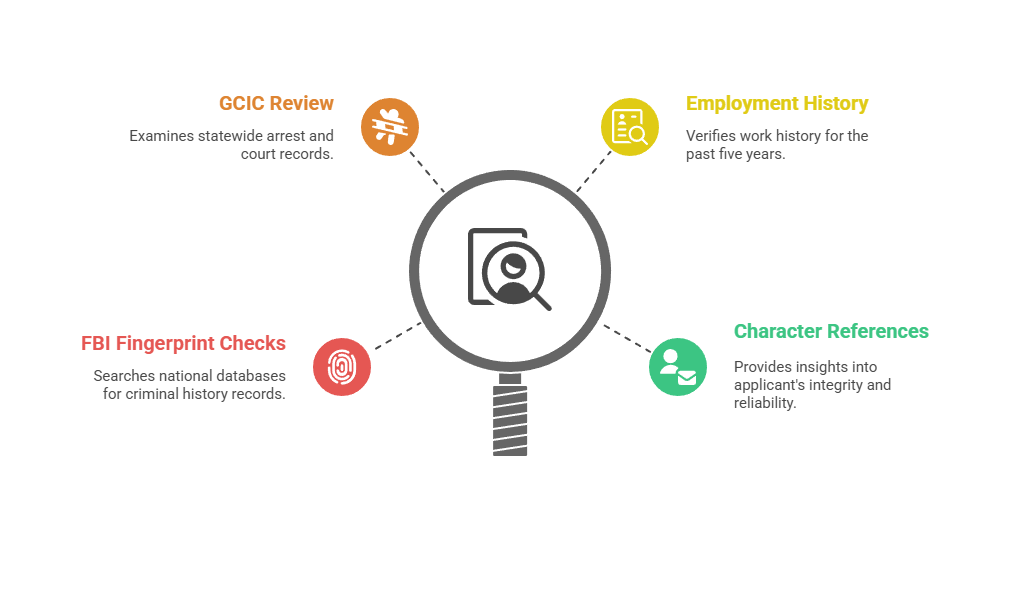
- FBI fingerprint-based criminal history checks: Search national databases for arrest records, convictions, or pending charges across all 50 states to ensure comprehensive review regardless of where incidents occurred.
- Georgia Crime Information Center (GCIC) review: Examines statewide arrest records, court dispositions, and correctional facility records to capture information that may not appear in federal databases.
- Employment history verification: Requires detailed work histories covering the previous five years, including employer names, addresses, supervisors, and reasons for leaving positions.
- Character reference checks: Three non-family members must submit references providing insight into the applicant's integrity, reliability, and suitability for security work.
Agencies should note that state licensing approval does not eliminate employer obligations under federal employment law. Consulting with employment law attorneys ensures comprehensive compliance with both state licensing requirements and federal background screening regulations.
The Georgia Security Guard Background Check Process
Initial Application and Documentation Requirements
The background check process initiates when applicants submit their security guard license applications to the Georgia Board. Required documentation must be complete and accurate to avoid processing delays. State licensing applications require disclosure of prior arrests, even those not resulting in convictions.
| Document Type | Details Required | Notes |
| Application Form | Completed with all sections | No blank fields permitted |
| Identification | Valid government-issued ID | Must match all other documents |
| Education Proof | High school diploma or GED | Certified copies accepted |
| Residency Proof | Georgia residency verification | Recent utility bill or lease |
| Fees | $75 (unarmed) or $100 (armed) | Subject to change; verify current rates |
| Court Records | Certified disposition records | For any arrests disclosed |
Job seekers should understand that state licensing requirements may differ from what employers can lawfully request on employment applications. Federal Equal Employment Opportunity Commission (EEOC) guidance generally discourages employers from asking about arrests without convictions due to potential disparate impact on protected classes.
Fingerprinting and Biometric Data Submission
Atlanta security guard screening requires all applicants to complete fingerprinting at authorized facilities using Live Scan electronic capture technology. The Georgia Applicant Processing Service (GAPS) operates multiple fingerprinting locations throughout metro Atlanta. Outside the metro area, applicants can use any Georgia Bureau of Investigation (GBI) approved Live Scan vendor.
The fingerprinting appointment typically takes 15-20 minutes. Technicians capture all ten fingerprints electronically and transmit the data directly to the Georgia Crime Information Center and FBI Criminal Justice Information Services Division. Fingerprinting fees range from approximately $40-$75 depending on the vendor selected.
Approximately 8-12% of submissions require resubmission due to image quality issues. Therefore, applicants should avoid scheduling immediately after manual labor activities. Applying hand lotion several hours before appointments may enhance ridge definition and improve capture quality.
Multi-Tier Background Investigation Process
Once fingerprints are processed, the background check involves a three-tier investigation approach. Each tier examines different aspects of an applicant's history and suitability for licensure. The comprehensive nature of this process ensures thorough vetting of all security guard applicants.
Tier One - Federal Database Search: Automated searches of FBI databases containing over 77 million criminal history records nationwide flag any matches to the applicant's biometric data. This federal check typically completes within 24-48 hours, though processing times may extend during high-volume periods. The FBI review identifies felony convictions, pending felony charges, active warrants, and specific misdemeanor offenses that may impact licensing eligibility.
Tier Two - State Criminal Records Review: Examination of Georgia state criminal records through the GCIC system captures information that may not appear in federal databases, including local ordinance violations and county-level charges. The GCIC review connects with superior courts, state courts, probate courts, and municipal courts throughout Georgia's 159 counties. This comprehensive state-level search typically requires 5-10 business days to complete.
Tier Three - Manual Verification Process: Board investigators contact previous employers to confirm dates of employment, job titles, and circumstances surrounding separations. Reference contacts receive standardized questionnaires addressing the applicant's honesty, reliability, and conflict resolution skills. This tier typically requires 2-3 weeks to complete, depending on how quickly employers and references respond to verification requests.
Georgia Security Guard Disqualifications and Ineligibility Factors
Criminal Convictions That May Result in License Denial
The Georgia private security background check process identifies several categories of criminal convictions that typically result in license denial, subject to the Board's discretionary review. Understanding these factors helps applicants and employers anticipate potential licensing challenges. However, the Board may consider mitigating circumstances, evidence of rehabilitation, and the specific nature of offenses in making licensing decisions.
Felony convictions within the previous 10 years generally create significant barriers to licensure. Serious violent or sexual offenses including murder, voluntary manslaughter, rape, child molestation, aggravated sexual battery, armed robbery, and kidnapping typically result in license denial regardless of time elapsed. Drug trafficking convictions and violence-related felonies including aggravated assault, aggravated battery, and terroristic threats generally fall into this category as well.
Federal law prohibits individuals with domestic violence convictions from possessing firearms under the Lautenberg Amendment (18 U.S.C. § 922(g)(9)). This makes these convictions disqualifying for armed security positions. For unarmed positions, domestic violence convictions represent significant negative factors during Board review.
Employment Law Considerations for Employers
While the Board's licensing decisions inform employment eligibility, employers must conduct their own individualized assessments when making hiring decisions based on criminal history. EEOC guidance requires considering specific factors before employment denials. Criminal history exclusions can create disparate impact on protected classes including African American and Hispanic applicants.
Employers should evaluate these key factors:
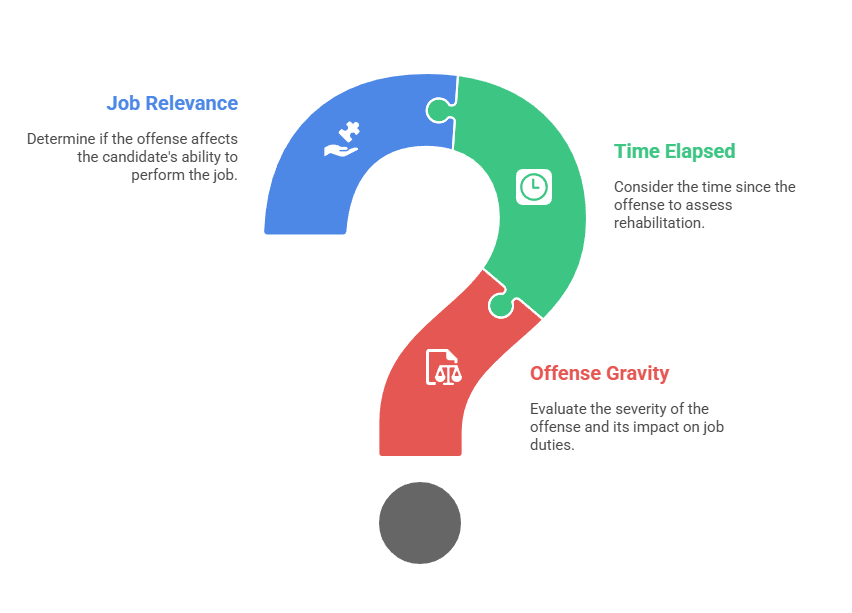
- Nature and gravity of the offense: Consider the specific criminal conduct and its relationship to the security position's duties and responsibilities.
- Time elapsed since the offense: Assess the period between the offense or completion of sentence and the present employment decision to evaluate rehabilitation evidence.
- Nature of the job being sought: Determine whether the offense has direct relevance to the essential functions and trust requirements of the specific security position.
Simply relying on the Board's licensing decision does not substitute for employer obligations under Title VII of the Civil Rights Act. Developing compliant screening policies requires careful policy development with legal counsel to balance security needs with anti-discrimination requirements.
Additional Factors Considered During Board Review
Beyond criminal convictions, several factors may influence licensing decisions during Board evaluation. Patterns of behavior indicating poor judgment receive scrutiny even without criminal convictions. Multiple serious traffic violations indicating reckless disregard for public safety, civil judgments for fraud or breach of fiduciary duty, and prior terminations from security positions due to performance or integrity issues all weigh in Board determinations.
Incomplete or dishonest application information represents a serious concern. Applicants who fail to disclose arrests or provide false employment history face potential denial not just for the underlying issues but for demonstrating dishonesty during the licensing process. This emphasizes the importance of thorough, honest disclosure throughout the application process.
Navigating Atlanta Security License Fingerprinting Locations
Security agencies processing multiple applications benefit from understanding the various Atlanta security license fingerprinting options available throughout the metro area. Proper planning reduces delays and streamlines the onboarding process. Multiple authorized facilities serve different geographic areas across metropolitan Atlanta and surrounding counties.
| Location | Address | Service Area | Typical Wait Times |
| GAPS Decatur | 2801 Candler Road | DeKalb, Fulton counties | Moderate; mid-week optimal |
| GAPS Marietta | 1875 Old Alabama Road | Cobb, Cherokee, Paulding counties | Lower; convenient parking |
| GAPS Lawrenceville | 750 South Perry Street | Gwinnett, Barrow, Jackson counties | Moderate; appointment preferred |
Private Live Scan vendors throughout Atlanta offer additional fingerprinting options, often with extended hours including evening and weekend availability. These vendors charge fees ranging from approximately $55-$75, but the scheduling flexibility proves valuable for agencies onboarding applicants who work irregular shifts. All private vendors must maintain Georgia Bureau of Investigation approval, which agencies should verify before directing applicants to these facilities.
Common Application Delays and How to Avoid Them
Documentation Deficiencies and Incomplete Submissions
Incomplete documentation at submission represents the most common cause of extended processing times. Applications missing required elements enter pending status while board staff request additional information. Proactive preparation prevents these delays and keeps the licensing process moving forward efficiently.
Court disposition records for disclosed arrests frequently create problems, particularly when arrests occurred in other states or many years prior. Applicants can prevent these delays by requesting certified court records well before submitting license applications. Most courts require written requests, payment of record fees (typically $15-$50 per court), and 2-3 weeks processing time to produce certified disposition records.
Employment verification complications arise when applicants list employers who have since gone out of business or merged with other companies. Contacting all listed employers before application submission confirms they can verify employment and prevents verification delays. When employers cannot verify directly, applicants should provide alternative documentation such as W-2 forms or pay stubs with explanatory statements.
Name Discrepancies and Identity Verification Issues
Name variations between documents cause significant processing delays and occasionally result in mismatched criminal records. Applicants who have changed names due to marriage, divorce, or legal name changes must provide documentation connecting all names used during the relevant period. Marriage certificates, divorce decrees, and court orders for legal name changes should accompany applications whenever the current legal name differs from names used previously.
Middle name variations present particular challenges. Fingerprint cards and applications should reflect the applicant's full legal name exactly as it appears on government-issued identification. The employment history section should note any name variations used during previous employment to facilitate verification.
Appeal Processes for Denied Applications
When the Georgia Board denies a security guard license application, applicants receive written notification detailing the specific reasons for denial. Georgia law provides applicants with appeal rights, allowing them to present additional context, evidence of rehabilitation, or arguments regarding mitigating circumstances. The appeal window opens for 30 days from the date of the denial letter.
Successful appeals typically require several key components:
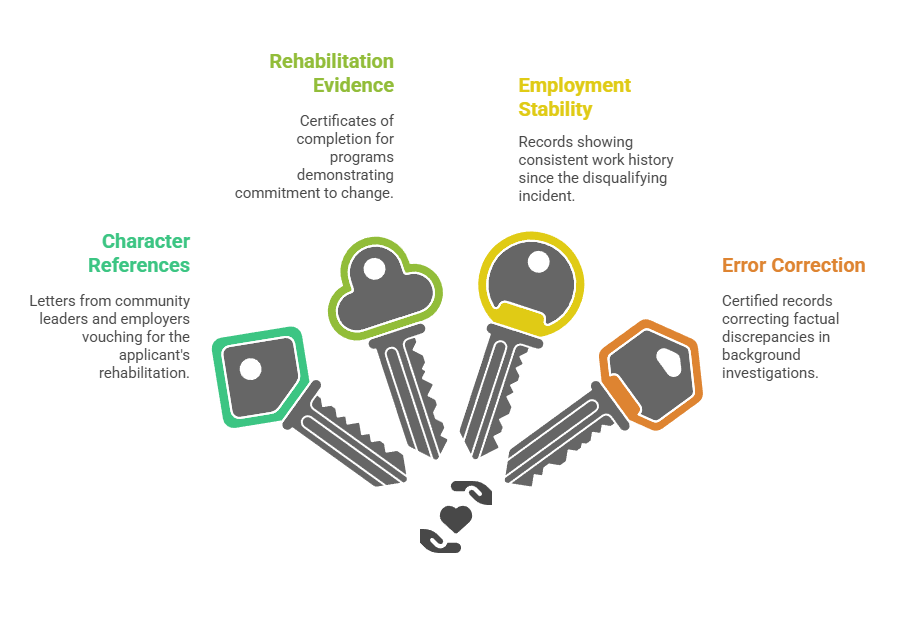
- Character references: Letters from community leaders, employers, counselors, or others who can speak to the applicant's rehabilitation and current character provide powerful support for reconsideration.
- Rehabilitation evidence: Certificates of completion for relevant programs such as anger management, substance abuse treatment, or educational programs related to the underlying disqualification reasons demonstrate commitment to positive change.
- Employment stability records: Documentation showing stable work history since the disqualifying incident demonstrates responsibility, reliability, and successful reintegration into the workforce.
- Error correction documentation: Certified records from relevant courts or law enforcement agencies showing factual discrepancies in background investigations, including cases of mistaken identity where records were incorrectly attributed to the applicant.
Applicants considering appeals should consult with attorneys experienced in administrative law and licensing matters. The appeal process involves formal procedures, evidentiary rules, and legal arguments that benefit from professional representation.
FCRA Compliance for Security Agency Employers
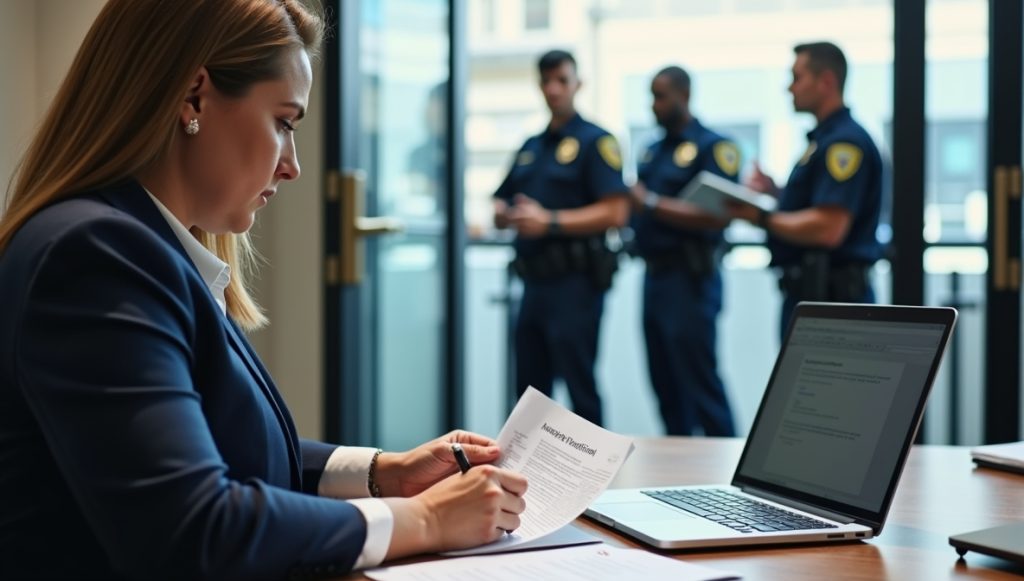
Understanding Employer Obligations Under Federal Law
Security agency owners and staffing companies must understand that state licensing background checks conducted by the Georgia Board operate separately from employer obligations under the Fair Credit Reporting Act (FCRA). When employers use third-party consumer reporting agencies to screen applicants or employees, they must comply with FCRA requirements regardless of whether applicants also undergo state licensing investigations. These federal obligations apply nationwide and carry significant penalties for violations.
The FCRA requires employers to provide applicants with a standalone written disclosure that a consumer report may be obtained for employment purposes. This disclosure must appear in a document consisting solely of the disclosure. Employers must also obtain the applicant's written authorization before procuring the background check report, and this authorization cannot include liability waivers or other extraneous information.
Pre-Adverse Action and Adverse Action Requirements
Before taking adverse action based on information in a consumer report, employers must follow a two-step process designed to protect applicant rights. The pre-adverse action process requires providing the applicant with a copy of the consumer report and a copy of "A Summary of Your Rights Under the Fair Credit Reporting Act." Employers should then wait a reasonable period—typically five or more business days—before proceeding with the employment decision.
| FCRA Compliance Step | Required Actions | Timing |
| Initial Disclosure | Provide standalone written notice | Before obtaining report |
| Authorization | Obtain written consent | Before obtaining report |
| Pre-Adverse Action | Provide report copy and rights summary | Before final decision |
| Waiting Period | Allow dispute opportunity | 5+ business days recommended |
| Adverse Action Notice | Provide final notice with CRA information | After final decision |
After completing the pre-adverse action waiting period, employers taking adverse action must provide an adverse action notice. This notice must contain the name, address, and phone number of the consumer reporting agency that supplied the report, a statement that the agency did not make the adverse decision, notice of the individual's right to dispute report accuracy, and notice of the right to request an additional free consumer report within 60 days.
Integrating Background Screening with Employment Law Compliance
EEOC guidance requires employers to conduct individualized assessments before making employment decisions based on criminal history information. This requirement applies regardless of whether criminal history comes from state licensing investigations or employer-initiated background checks. The individualized assessment should consider the nature and gravity of the offense, the time that has passed since the offense, and the nature of the job sought.
Criminal history exclusion policies can create disparate impact on protected classes. Statistical evidence demonstrates that criminal justice involvement rates differ significantly by race and ethnicity. Therefore, blanket exclusion policies may disproportionately affect African American and Hispanic applicants. Employers should work with employment law counsel to develop policies that balance legitimate business needs with compliance obligations under Title VII of the Civil Rights Act.
Best Practices for Security Agencies Managing Compliance
Security agencies can reduce wasted time and resources by implementing thorough pre-screening before submitting formal license applications. Initial applicant interviews should include detailed discussions about criminal history using open-ended questions that encourage disclosure. Explaining that Georgia licensing applications require disclosure of all arrests—not just convictions—helps applicants understand disclosure importance.
Conditional employment offers should explicitly state that continued employment depends on successful completion of background checks and license approval. Creating standardized documentation checklists for each application prevents submissions with missing elements. Designating a single staff member as the background check coordinator centralizes knowledge and ensures consistent application preparation across all applicants.
Security guard licenses require renewal every two years in Georgia, with renewal applications typically due 30-60 days before expiration. Implementing automated reminder systems that alert HR staff 90 days before expiration provides adequate processing time without interrupting work schedules. Regular audits of personnel files ensure all current employees maintain valid, unexpired licenses.
Conclusion
Navigating Georgia security guard background checks requires understanding both state licensing requirements and federal employment law obligations. Security agencies must balance compliance with Georgia Board of Private Detective & Security Agencies regulations while simultaneously meeting FCRA requirements and anti-discrimination mandates. The investment in proper background check procedures—supported by consultation with qualified legal counsel—protects agencies from liability exposure while ensuring clients receive qualified, trustworthy security personnel. As regulatory frameworks and case law continue evolving, maintaining current knowledge through professional development and legal consultation remains essential for competitive advantage and risk management in the private security industry.
Frequently Asked Questions
How long does a Georgia security guard background check take?
Processing typically takes 30-45 days from fingerprint submission to license approval for complete applications without complicating factors. Applications requiring additional documentation or clarification may take 60-90 days or longer depending on how quickly applicants provide requested information. Processing times are approximate and subject to variation based on submission volume and individual circumstances. Agencies should plan onboarding timelines accordingly to account for potential delays.
What factors may disqualify someone from Georgia security guard licensure?
The Georgia Board typically considers felony convictions within the past 10 years, serious violent or sexual offenses, drug trafficking convictions, domestic violence convictions, and dishonest application information as significant negative factors in licensing decisions. However, the Board exercises discretionary authority in reviewing applications and may consider mitigating circumstances, rehabilitation evidence, and individual factors. Applicants concerned about potential disqualification should consult with licensing attorneys before applying to assess their specific situations and potential appeal strategies.
Can someone work as a security guard in Georgia while their background check is being processed?
No, Georgia law prohibits anyone from performing security guard duties without a valid license issued by the Board of Private Detective & Security Agencies. Applicants must wait until their license is approved and issued before beginning security work. Agencies that allow unlicensed individuals to work in security capacities face substantial regulatory consequences including fines and potential license revocation.
Where can applicants get fingerprinted for a Georgia security guard license in Atlanta?
Authorized fingerprinting locations in the Atlanta metro area include Georgia Applicant Processing Service (GAPS) facilities in Decatur, Marietta, and Lawrenceville, plus various private Live Scan vendors approved by the Georgia Bureau of Investigation. Verify current locations, hours, and fees before scheduling appointments, as this information changes periodically. All facilities use electronic fingerprint capture technology that transmits results directly to state and federal databases for processing.
What FCRA requirements apply to security agencies conducting background checks?
Employers using third-party consumer reporting agencies must provide standalone written disclosure, obtain written authorization, conduct pre-adverse action processes before making negative employment decisions, and provide adverse action notices containing required information. These federal requirements apply separately from state licensing background checks and carry significant penalties for violations. Consult with employment law counsel to ensure comprehensive FCRA compliance and develop proper policies and procedures.
Can applicants appeal denied security guard license applications in Georgia?
Yes, applicants typically have 30 days from the denial notice date to file written appeals with the Georgia Board. The appeal process allows presenting additional evidence, demonstrating rehabilitation, or correcting factual errors in background investigations. Appeals require compelling evidence and often benefit from representation by attorneys experienced in administrative licensing matters who understand the procedural requirements and evidentiary standards applied by the Board.
Do Georgia security guard background checks examine out-of-state criminal records?
Yes, the FBI fingerprint-based background check searches nationwide databases containing criminal records from all states. Biometric fingerprint matching identifies records regardless of where incidents occurred, ensuring comprehensive criminal history review for all applicants. Applicants cannot hide criminal histories from other jurisdictions, as the fingerprint-based system cross-references records from all contributing agencies nationwide.
Must applicants disclose arrests that didn't result in convictions?
Georgia licensing applications typically require disclosure of all arrests, including those not resulting in convictions. The Board evaluates arrests in context—properly disclosed arrests without convictions generally do not disqualify applicants, while concealing arrests may result in denial for dishonesty. Note that employer application practices differ based on EEOC guidance, and employers should consult legal counsel regarding what may be lawfully requested on employment applications to avoid discrimination claims.
Additional Resources
- Georgia Board of Private Detective & Security Agencies Official Licensing Information
https://sos.ga.gov/page/private-detective-security-agencies - Federal Trade Commission Fair Credit Reporting Act Compliance Guide for Employers
https://www.ftc.gov/business-guidance/resources/using-consumer-reports-what-employers-need-know - EEOC Enforcement Guidance on Consideration of Arrest and Conviction Records
https://www.eeoc.gov/laws/guidance/enforcement-guidance-consideration-arrest-and-conviction-records-employment - Georgia Bureau of Investigation Criminal History Record Checks
https://gbi.georgia.gov/services/criminal-history-record-checks - Official Code of Georgia Annotated Title 43, Chapter 38
https://law.justia.com/codes/georgia/2010/title-43/chapter-38
Still have questions?
Get in touch with our team today for a personalized demo and discover how our tailored volume pricing and packages can drive results for your business!
How useful was this page?*
Note: your comments are anonymous. We use them to improve the website. Do not include any personal details.
Visit our FCRA Compliance Tool or leave a message here if you need a response.
From the blog Explore the GCheck Content Hub

Florida Education Background Checks: 2026 Compliance Guide for School Districts
27 Jan, 2026 • 19 min read
Texas Construction Background Check Requirements: Compliance and Best Practices for 2026
27 Jan, 2026 • 19 min read
Illinois CDL Background Check Requirements 2026: Compliance for Commercial Transportation Employers
27 Jan, 2026 • 21 min readThe information provided in this article is for general informational and educational purposes only and should not be construed as legal advice or a substitute for consultation with qualified legal counsel. While we strive to ensure accuracy, employment screening laws and regulations—including but not limited to the Fair Credit Reporting Act (FCRA), Equal Employment Opportunity Commission (EEOC) guidelines, state and local ban-the-box laws, industry-specific requirements, and other applicable federal, state, and local statutes—are subject to frequent changes, varying interpretations, and jurisdiction-specific applications that may affect their implementation in your organization. Employers and screening decision-makers are solely responsible for ensuring their background check policies, procedures, and practices comply with all applicable laws and regulations relevant to their specific industry, location, and circumstances. We strongly recommend consulting with qualified employment law attorneys and compliance professionals before making hiring, tenant screening, or other decisions based on background check information.
